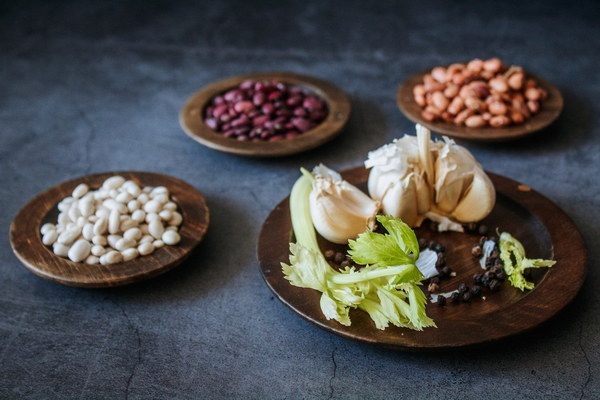Breathe Easy Discover the Impact of Qingfei Tea on Lung Health – Available Now!
In the fast-paced world we live in, pollution and stress have become common companions, often taking a toll on our respiratory health. Enter Qingfei Tea, a traditional Chinese herbal concoction that has been gaining popularity for its potential benefits in improving lung function and overall respiratory well-being. But what exactly is Qingfei Tea, and how does it impact your health? Let's delve into the mysteries of this ancient brew.
Understanding Qingfei Tea
Qingfei Tea, also known as Lung Clearing Tea, is a blend of various Chinese herbs traditionally used to support lung health. The name Qingfei translates to clearing the lungs in English, which gives you a hint about its primary purpose. This herbal tea is believed to help in alleviating symptoms of respiratory conditions such as asthma, bronchitis, and allergies, as well as to support overall lung function.
The Ingredients
The secret to Qingfei Tea lies in its carefully selected ingredients. Some of the key herbs found in this tea include:
- Fenugreek Seed: Known for its anti-inflammatory properties, fenugreek seed helps in soothing the respiratory tract.
- Honey Locust Seed: This ingredient is believed to have expectorant properties, aiding in the removal of phlegm.
- Goji Berry: Renowned for its immune-boosting properties, goji berries add a nutritional boost to the tea.
- Licorice Root: Licorice is often used in Chinese medicine to relieve coughs and soothe the throat.

How Qingfei Tea Works
The synergistic effect of these herbs in Qingfei Tea works in several ways to support lung health:
1. Anti-Inflammatory Properties: Many of the ingredients in Qingfei Tea have anti-inflammatory effects, which can help reduce inflammation in the respiratory tract, alleviating symptoms of conditions like asthma and bronchitis.
2. Expectorant Actions: Ingredients like honey locust seed help to loosen mucus in the lungs, making it easier to cough up and clear the airways.
3. Immune Support: Herbs like goji berries and licorice root can support the immune system, helping the body fight off respiratory infections.
4. Detoxification: Qingfei Tea is believed to aid in the detoxification of the lungs, helping to remove impurities and pollutants that can accumulate over time.
Is Qingfei Tea Available?
The availability of Qingfei Tea varies depending on your location. Some health food stores and online retailers offer this traditional tea, while others may not carry it. If you're interested in trying Qingfei Tea, here are a few steps to follow:
1. Research: Look for reputable sources that sell Qingfei Tea. Reading reviews and checking the ingredients list can help ensure you're getting a high-quality product.
2. Consult a Healthcare Professional: Since Qingfei Tea contains natural herbs, it's always a good idea to consult with a healthcare professional before starting any new supplement, especially if you have existing health conditions or are taking other medications.
3. Prepare the Tea: Follow the instructions on the packaging to prepare the tea. Typically, you'll need to steep the tea bags in hot water for a few minutes before drinking.
4. Regular Consumption: For the best results, it's recommended to drink Qingfei Tea regularly. While it may not replace conventional medical treatment for serious respiratory conditions, it can be a complementary therapy to support overall lung health.
Conclusion
In a world where pollution and respiratory health concerns are prevalent, Qingfei Tea offers a natural and traditional approach to supporting lung function. Whether you're looking to improve your respiratory health or simply want to add a wellness ritual to your daily routine, Qingfei Tea might be the perfect addition. With its blend of beneficial herbs and its potential to aid in lung health, this traditional tea is certainly worth exploring.









